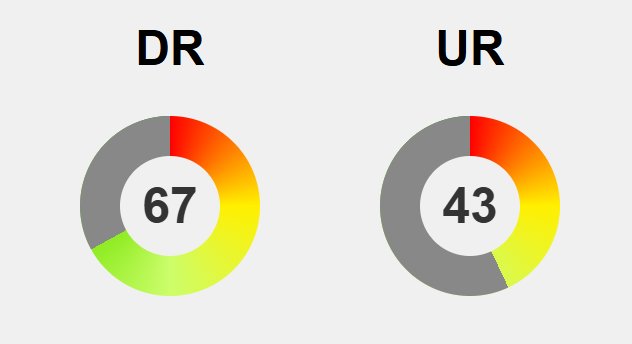The story of Christopher Columbus is a captivating exploration of bold discovery intertwined with profound controversy. His 1492 voyage marked a pivotal moment, linking distant continents and initiating a new era of global trade, cultural exchange, and exploration. Yet, beneath the narrative of adventure lies a darker history of violence, exploitation, and cultural upheaval inflicted upon indigenous peoples. Columbus’s journey exemplifies human curiosity and ambition, but also highlights the moral complexities and human costs of progress. As debates around his legacy intensify, this story prompts us to reflect on the intertwined nature of discovery and destruction. How can we honor the spirit of exploration while acknowledging its tragic consequences? Columbus’s voyages continue to shape our understanding of history, challenging us to confront uncomfortable truths and forge a more just and inclusive future. His legacy is a testament to both our capacity for innovation and our need for moral responsibility.
Columbus’s Daring Voyage and Its Earth-Shaking Impact
The story of Christopher Columbus is a compelling tale of daring adventure and profound change. His voyage in 1492 didn’t just mark the discovery of new lands; it opened a chapter that would forever alter the course of global history. By crossing the Atlantic, Columbus connected continents that had previously been isolated, setting into motion centuries of exploration, colonization, and cultural exchange. His journey symbolized the human drive to push beyond known boundaries, fueled by curiosity, ambition, and the desire for wealth and influence.
Columbus’s arrival in the Caribbean is widely seen as a pivotal moment when Europeans first made sustained contact with the Americas. This encounter reshaped world trade, politics, and societies, laying the groundwork for a modern interconnected globe. His expeditions initiated a wave of European expansion that brought new crops, ideas, and technologies across continents. Yet, alongside these advances came violence, forced labor, and devastating impacts on indigenous populations.
His voyage embodied both human curiosity and the moral complexities of discovery. Columbus’s daring spirit opened doors to new worlds, but it also sparked debates that continue today about the costs of exploration. His journey was driven by a quest for riches and national prestige, yet it left a legacy tangled with controversy—highlighting the contradictions of progress made at others’ expense.
The context of Columbus’s voyage was shaped by Europe’s hunger for new trade routes and territorial expansion. Driven by technological innovations like the compass and improved ships, Europeans sought faster routes to Asia’s riches. Columbus believed sailing west could lead him to these distant lands, despite widespread skepticism about the viability of such a route. His conviction was rooted in a desire to find a shortcut through uncharted waters.
Funding finally came after years of persuasion, with Spain’s Queen Isabella and King Ferdinand backing his plans. In August 1492, Columbus set sail with three ships—the Santa María, Pinta, and Niña—facing the unpredictable Atlantic and mounting crew tensions. Over two months at sea, doubts grew, but Columbus’s confidence pushed him onward. When land was finally sighted on October 12, it was not Asia, but the Caribbean—a “New World” waiting to be explored.
Columbus’s landing marked a turning point in history. Although he thought he had found Asia’s outskirts, he had stumbled upon an entirely new continent. The subsequent voyages deepened European knowledge of the region, fueling ambitions for colonization and resource extraction. His journey ignited a new era of exploration that would reshape the world’s political and cultural landscape for centuries, with profound and often tragic consequences for indigenous peoples.
The Epic Journey of 1492: Navigating Into the Unknown
Columbus’s first voyage in 1492 was a remarkable feat of planning and determination. After years of seeking funding and convincing Spain’s monarchs that his westward route could lead to riches and new territories, he finally secured support from Queen Isabella and King Ferdinand. Their backing was driven by a mix of economic ambitions and the desire to bolster Spain’s influence through exploration. With their approval, Columbus set sail in August 1492, commanding three ships—the Santa María, the Pinta, and the Niña—each modest in size but sturdy enough for the long Atlantic crossing.
The journey into uncharted waters was full of uncertainty and tension. The crew faced unpredictable weather, cramped conditions, and mounting fears about the unknown. Many sailors doubted Columbus’s navigation skills and questioned whether they would ever find land or if they were sailing off the edge of the world. Despite these doubts, Columbus remained confident, relying on navigational tools like the compass and the astrolabe, which were still relatively new but essential for such voyages. His unwavering belief kept the crew moving forward through weeks of anxious uncertainty.
More than two months into the voyage, on October 12, 1492, the crew finally spotted land. Columbus believed he had reached Asia—perhaps the outer islands of India or the Spice Islands—as he had hoped. Instead, they had stumbled upon a small island in the Caribbean, which Columbus named San Salvador. Although mistaken about the land’s true nature, this discovery was monumental: Europeans had encountered a “New World,” previously unknown to them. Columbus’s arrival marked the beginning of a new chapter, opening the door to exploration, colonization, and cultural exchange across the Atlantic.
Following this initial landfall, Columbus explored further islands, including Cuba and Hispaniola. His primary motivation remained gold and territorial control, but what he truly uncovered was a vast, unfamiliar continent. Despite believing he was near Asia, he was actually in a new world teeming with different peoples, plants, and animals—an entirely separate landmass that would soon change history. His voyages launched a wave of European interest in claiming and exploiting these lands, setting off centuries of colonization.
The immediate aftermath of the voyage saw both celebration and controversy back in Spain. Columbus’s reports of new lands ignited enthusiasm across Europe, prompting further expeditions. Yet, the voyage also exposed the perils of exploration—crew members faced months at sea with little certainty of success. Tensions mounted, and Columbus’s leadership was tested as he navigated the delicate balance of exploration and the harsh realities of uncharted waters. Still, his success proved that even the most daunting journeys could end in groundbreaking discoveries.
Despite the triumph, Columbus’s voyage was just the beginning. His discoveries reshaped the world’s understanding of geography and prompted a rush by European powers to explore and colonize. However, the journey’s true significance lay in its unintended consequences: the colonization of indigenous lands, the exchange of crops and diseases, and the profound cultural upheaval that followed. The voyage of 1492 was a pivotal moment—one that opened an entirely new chapter in human history, driven by curiosity but shadowed by conflict.
The Controversial Legacy: Triumphs and Tragedies of Columbus
The legacy of Christopher Columbus continues to ignite fierce debate, revealing the deep contradictions in how history remembers him. For many, he stands as a daring explorer whose voyages expanded the known world and paved the way for interconnected global trade and cultural exchange. His role in opening new routes and discovering the Americas marked a pivotal moment in world history, symbolizing human curiosity and ambition at its best.
Yet beneath this celebratory narrative lies a darker reality. Columbus’s expeditions were marked by brutality and exploitation. His treatment of indigenous peoples involved violence, forced labor, and cultural suppression, leading to the near destruction of native societies. Diseases like smallpox, brought by Europeans, decimated entire populations, often before Europeans even set foot on the land. These actions cast a long shadow over his achievements, raising questions about the morality of his legacy.
The story of colonization complicates matters further. Columbus was not merely an explorer; he was a catalyst for conquest. His efforts laid the groundwork for centuries of European domination, which uprooted indigenous cultures and ecosystems. The forced removal and systemic oppression of native peoples, along with their displacement and suffering, reveal the profound human cost of exploration driven by greed and power.
In recent years, society has begun to challenge the traditional hero narrative. Statues and holidays honoring Columbus are increasingly scrutinized or removed, replaced by commemorations that acknowledge indigenous suffering. Movements such as Indigenous Peoples’ Day aim to reframe history, emphasizing the voices of those who endured colonization’s harshest consequences. This shift seeks a more honest, inclusive story that respects the full scope of his impact.
Recognizing these conflicting perspectives highlights the importance of a balanced view. Celebrating Columbus’s role in expanding horizons must go hand-in-hand with acknowledging the violence and destruction that accompanied his voyages. It’s a reminder that progress often comes at a significant human and environmental cost—one that must not be overlooked.
Columbus’s story exemplifies how exploration and conquest are intertwined. His voyages connected distant worlds but also initiated centuries of suffering for indigenous populations. The moral complexity of his legacy prompts us to reflect on the true price of discovery and the importance of confronting uncomfortable truths.
Today, debates about his legacy are more intense than ever. They challenge us to reconsider how history is told and whose stories are prioritized. Moving beyond simplistic hero or villain labels allows us to see Columbus as a symbol of both human ingenuity and human error—a reminder that progress is rarely free from moral dilemmas.
Ultimately, Columbus’s legacy is a mirror of the broader human story—full of ambition, achievement, and profound tragedy. Understanding this complexity helps us appreciate the full impact of his voyages, urging us to learn from the past and forge a future rooted in respect, justice, and awareness of history’s true costs.
As discussions around Columbus’s legacy continue to evolve, many are exploring alternative narratives that highlight indigenous perspectives and histories. For those interested in understanding the full scope of his impact, exploring resources about the history of Indigenous Peoples’ Day can provide valuable insights. To learn more, you can visit Indigenous Peoples’ Day and gain a deeper understanding of efforts to reframe this complex history.
Columbus’s Influence on Modern Society and Global Relations
Columbus’s voyages and their legacy continue to shape our world today in both visible and subtle ways. His story inspires explorers and innovators pushing boundaries in space, technology, and environmental science, embodying the timeless human urge to discover and expand. The daring spirit that fueled Columbus’s journey still fuels modern pursuits of the unknown, reminding us that progress often begins with bold leaps into uncharted territory.
At the same time, our collective memory of Columbus has shifted. Many communities now question the hero narrative, especially given the violence and exploitation that followed his expeditions. Statues are coming down, and holidays are being renamed to honor indigenous peoples and acknowledge their suffering. This change reflects a broader effort to tell a more honest history—one that recognizes both achievement and tragedy.
The Columbian Exchange, which began after Columbus’s landings, still influences us. It introduced new crops, animals, and diseases across continents, transforming diets, economies, and ecosystems. Today’s environmental challenges—like invasive species and climate shifts—are echoes of these early exchanges, highlighting how interconnected and fragile our global system remains.
Legal and political issues rooted in colonization also trace back to Columbus’s voyages. Land rights, sovereignty debates, and indigenous protections are ongoing struggles shaped by centuries of conquest. Recognizing this history helps us understand current conflicts and emphasizes the importance of justice, inclusion, and respect for native communities.
Culturally, Columbus’s story accelerated global interconnectedness, blending traditions, languages, and ideas. While this diversity fuels innovation, it also brings challenges like social inequalities and environmental degradation. His voyages set in motion forces that continue to influence our socio-economic landscape, reminding us that exploration’s ripple effects are complex and long-lasting.
The ecological and demographic impacts of Columbus’s expeditions are still felt. The decimation of indigenous populations, the transfer of plants and animals, and the spread of diseases reshaped societies and environments. These consequences serve as stark lessons about the unintended costs of discovery—costs that extend far beyond the initial voyage.
Reflecting on Columbus’s legacy urges us to see exploration as a double-edged sword. It opened doors to new worlds and ideas but also caused suffering and loss. Embracing this full picture encourages a responsible approach to progress—one rooted in respect, awareness, and the lessons of history.
Looking ahead, understanding Columbus’s complex legacy can guide us toward more inclusive and ethical choices. Recognizing both the achievements and the harms of exploration helps ensure we build a future that values justice and sustainability, learning from the past’s full story.
Revisiting the Voyage’s Enduring Significance and Lessons
The story of Columbus’s voyages continues to resonate because it captures both the daring spirit of exploration and the moral complexities that come with discovery. His journey expanded the known world, forging connections between continents and cultures that had previously been isolated. This act of bridging worlds laid the foundation for a global network of trade, ideas, and exchange that still influences our lives today. Yet, behind these achievements lies a history marked by violence, displacement, and cultural upheaval. Recognizing both sides is essential to understanding the full scope of Columbus’s impact.
His voyages demonstrated how technological advances like the compass and improvements in shipbuilding made long-distance exploration possible. These innovations fueled the European push into uncharted waters and opened the doors to new worlds, ideas, and resources. Columbus’s role was pivotal, but his journey also reflected broader ambitions among European nations seeking wealth, territorial expansion, and influence. His expedition set in motion a wave of exploration that forever altered the geopolitical and cultural landscape of the planet.
The lasting influence of Columbus’s discoveries is undeniable. They sparked centuries of exploration, colonization, and cultural exchange, shaping modern societies and international relations. At the same time, these explorations initiated a tragic chapter for indigenous peoples—marked by violent conquest, systemic exploitation, and cultural destruction. The decimation of native populations and the upheaval of their societies serve as a stark reminder that progress often comes with profound human costs. These realities challenge us to view history with honesty and nuance.
Today’s debates over Columbus’s legacy are more intense than ever. Many communities question the traditional hero narrative, especially given the suffering and displacement that followed his voyages. Statues are being removed, and holidays are being renamed to honor indigenous histories and perspectives. This shift aims to build a more inclusive understanding of history—one that acknowledges the darker side of exploration alongside its achievements. It encourages us to reflect on the true cost of discovery and the importance of justice.
Looking forward, understanding the complex legacy of Columbus offers vital lessons. His voyages opened new horizons but also set in motion centuries of inequality and suffering. Recognizing this duality allows us to approach progress with greater responsibility and empathy. It urges us to learn from the past, respect diverse voices, and build a future rooted in justice, sustainability, and a more honest view of history’s full story.


